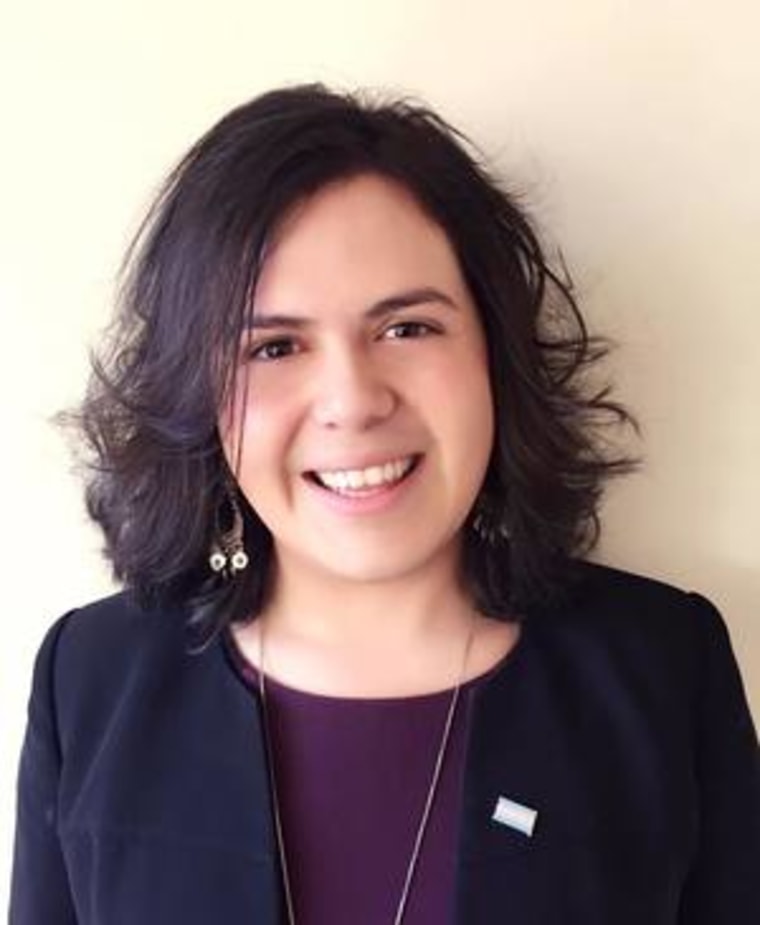“Deportation would be a death sentence,” Catalina Velasquez says over the phone. She was at home in D.C. the night of the election, where she watched Donald Trump slowly take the lead over Hillary Clinton. “To know that someone with such an anti-immigrant message was selected to head the executive branch,” she says, “it’s going to mean mass deportations. It’s going to mean separation of families.”

Catalina is one of the millions of undocumented immigrants living in the United States. Born in Cali, Colombia, she currently resides in Washington, D.C., where she is the president of Consult Catalina, a communications and diversity firm she founded. She was the first transgender undocumented person to attend Georgetown University, where she majored in International Politics. In 2013, she became the first transgender immigrant Latina appointed as Commissioner for the D.C. Office of Latino Affairs.
But Catalina is aware that despite her hard work, her success could be snatched away from her at any moment, along with the life she has grown accustomed to: an environment where she is able to be herself, where she feels free to be Catalina.
“I am a refugee,” she says. “I was fleeing persecution. My family came to the U.S. from Colombia because of the civil war and asked for political asylum. While things are not easy here in the United States, I have a network here. I have a way of surviving. I have a way of staying afloat.”
Back in Colombia, a world apart from everything she has built for herself, Catalina says there is nothing for her: a family who doesn’t accept her for who she is and a society she describes as patriarchal and heteronormative. “The U.S. is that way too,” she adds, “but my family in Colombia wouldn’t accept me. They would turn against me.”
Catalina says she told her parents she was a woman at an early age. “I don’t think they took it well,” she says and then pauses, “No, I know they didn’t take it well. They reacted very poorly. They engaged in a denial that harmed me. They made me question things I knew.”
She also mentions the violence many Colombians face rooted in economic hardship as a factor for fleeing the country; hardships she says are often rooted in U.S. intervention in Latin America.
“The war on drugs has exacerbated poverty in Colombia,” she says. “It targeted supply and ignored demand. This is a country that is over 50 percent agricultural, and they went after the crops,” this, in reference to the United States’ targeting of coca farms, which many indigenous Colombians and peasant farmers depend on to survive.
“There is an element of taking responsibility for the way the U.S. shows up in the world,” she says. “Immigration does not happen in a silo. Migration is natural. Immigration is not. If we do, it’s forced. Nobody wakes up and says let me abandon my life, away from my culture, my language, my family, just to do it.”
RELATED: Deportations Fall to All-Time Low Since Obama Took Office
The ascent of Trump and his anti-immigrant rhetoric has inspired terror in undocumented people in the U.S., and they are looking for ways to protect themselves. For Catalina, that means fighting for asylum in court.
“I’m looking to file for asylum,” she says. “It’s my way of standing and fighting back for my life. Because I do fear death. I fear persecution in Colombia, both by Colombian society and by my own family."
"I don’t see a world where I don’t get to be Catalina,” she continues. “A world where I don’t get to be the woman I am today. I can’t live without being me.”
RELATED: Is Trump Softening on Young Immigrants? Senators Hope So, Offer Bill
But the fight has not been easy. Catalina is one of the 3 million undocumented immigrants with a deportation order, making her future uncertain. She started a GoFundMe to help pay her legal fees for her immigration attorney.
It’s not only a fight to stay in the country, but also a fight to be Catalina. She says her mother’s first words to her after Trump’s win were, “Is it possible to reverse your gender transition if you come back to Colombia? I am scared for your safety.”
For all her unique accomplishments and struggles, Catalina is aware that she is ultimately one of millions, one in a large group of people who are afraid right now. “None of us is more deserving than the other,” she says. “Whether you’re picking tomatoes or cleaning houses or running a taco stand, we are all chipping in.”
She says she remains hopeful that people, regardless of political affiliation, will open their hearts and minds to undocumented people, who are, in her words, neighbors, friends and family.
“People deserve love and dignity,” she says. “We shouldn't have to make a case for that.”
